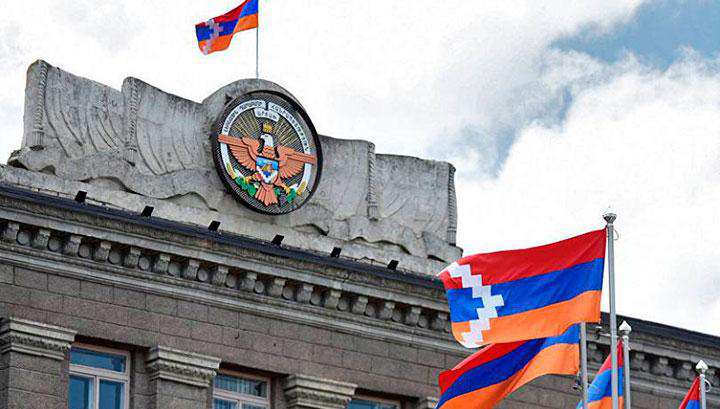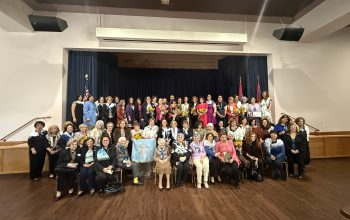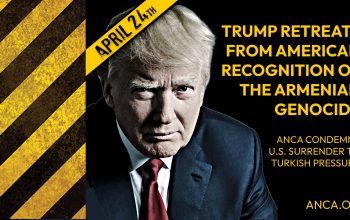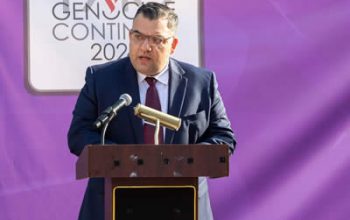Leaders of Artsakh have pushed back against claims by a senior Armenian official that their governing bodies no longer exist following Azerbaijan’s full control of the region last September.
Alen Simonyan, the speaker of the Armenian parliament and a close ally of Prime Minister Nikol Pashinyan, stated on Monday that these leaders can no longer act as legitimate representatives of the Karabakh Armenians because Karabakh is no longer a “legal entity.” Simonyan, like Pashinyan, referred to a decree signed by Samvel Shahramanyan, the Karabakh president, in September 2023. This decree was issued more than a week after an Azerbaijani military offensive that led to the mass exodus of the region’s ethnic Armenian population.
However, Shahramanyan later annulled the decree that dissolved the self-proclaimed Artsakh Republic in December. He explained that he had initially signed it to ensure the safe evacuation of Karabakh Armenians to Armenia.
In response to Simonyan’s remarks, Gagik Bagunts, the acting speaker of the Karabakh parliament, issued a statement later on Monday asserting that the parliament continues to operate in exile, one year after what he described as “ethnic cleansing.” Bagunts stated that its members “continue to bear responsibility for the fate of Artsakh Armenians in the current situation and are making every effort to ensure their collective return to the homeland under security guarantees.”
Aramayis Aghabekyan, another member of the Karabakh parliament, argued on Tuesday that Armenia should be invested in keeping Karabakh as a party to the Armenian-Azerbaijani conflict. He noted that the OSCE Minsk Group, which was tasked with mediating the conflict, has not been disbanded by the organization despite pressure from Baku. The Minsk Group, co-chaired by the United States, Russia, and France, has had a mandate for decades to negotiate with Karabakh’s elected representatives.
Metakse Hakobyan, another Karabakh lawmaker, countered the claims by Armenian authorities that the Artsakh issue is resolved. “Unlike these authorities, who are trying to convince everyone, including the world, that the Artsakh issue is closed, we are more than sure that it’s not,” Hakobyan said. “Our activities are aimed at keeping the Artsakh topic alive.”
Hakobyan emphasized that the current focus of the Karabakh leadership is addressing the socioeconomic challenges faced by Karabakh refugees in Armenia and preparing for their eventual return to their homeland. “That day will come,” she added.
In contrast, Artur Hovhannisyan, a senior member of Armenia’s ruling Civil Contract party, expressed skepticism about the possibility of such a return. He stated that Prime Minister Nikol Pashinyan’s political team sees no realistic chance for repatriation.
“All those who are trying to convince the people of Artsakh that there is a possibility of return are adventurers trying to create tension in Armenia … to put a new political leash on Armenia’s neck,” Hovhannisyan told Azatutyun.
Prime Minister Pashinyan has consistently indicated that, from his administration’s perspective, the Karabakh issue is settled. He had publicly recognized Azerbaijani sovereignty over Karabakh several months before the 2023 Azerbaijani offensive.




